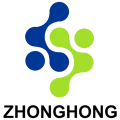What is Tetrandrine?
テトランドリン is a bis-benzylisoquinoline alkaloid extracted from the roots of Stephania tetrandra (a traditional Chinese medicinal plant), serving as the primary active component of “Fang Ji” in traditional Chinese medicine (TCM). With a unique chemical structure, it exhibits diverse biological activities, including anti-inflammatory, analgesic, antihypertensive, and immunomodulatory effects. Modern research has highlighted its potential in treating various diseases, making it a key ingredient in TCM formulations and some western pharmaceutical developments.
Benefits and Actions of Tetrandrine
- Anti-Inflammatory & Analgesic Effects
- Suppresses the release of inflammatory cytokines (e.g., TNF-α, IL-6), reducing joint inflammation. Commonly used as an adjuvant therapy for rheumatoid arthritis and osteoarthritis.
- Blocks neural signal transmission to alleviate chronic pain.
- Antihypertensive Action
- Blocks calcium channels in vascular smooth muscle cells, dilates peripheral blood vessels, and reduces peripheral vascular resistance, making it suitable for mild to moderate hypertension.
- Antitumor Adjuvant Properties
- Reverses multidrug resistance in tumor cells, enhancing the sensitivity to chemotherapy (e.g., studies on lung and breast cancer cells).
- Inhibits tumor angiogenesis, cell proliferation, and induces apoptosis.
- Immunomodulatory Function
- Suppresses T lymphocyte activation, potentially aiding in autoimmune diseases (e.g., systemic lupus erythematosus).
- Intervention in Pulmonary Fibrosis
- Clinical studies show it delays the progression of pulmonary fibrosis, used in the treatment of pneumoconiosis and idiopathic pulmonary fibrosis.

How to Take Tetrandrine? Daily Dosage
- Formulations & Administration:
Available as tablets (20mg/tablet) or capsules. Take orally after meals to reduce gastrointestinal irritation. - Recommended Dosages:
- General anti-inflammatory/analgesic:20–40mg per dose, 3 times daily, for 2–4 weeks.
- Hypertension adjuvant therapy:40–60mg per dose, 2–3 times daily. Adjust dosage under a doctor’s guidance when combined with antihypertensives.
- Antitumor adjuvant therapy:60–120mg per dose, 3 times daily, under oncologist supervision (dose varies by condition).
- Special Populations:
Reduce dosage for liver/kidney insufficiency (≤60mg daily). Elderly patients start at a low dose (20mg/dose) and titrate up.
Side Effects & Precautions
- 一般的な副作用:
- Gastrointestinal: Nausea, vomiting, loss of appetite (5–10% incidence).
- Neurological: Dizziness, drowsiness (rare, usually self-resolving).
- Cardiovascular: Hypotension (possible with overdose; monitor blood pressure).
- Hepatotoxicity: Long-term high-dose use may raise transaminases (<3% incidence; regular liver function checks needed).
- Contraindications & Cautions:
- Contraindicated in pregnant/lactating women and those allergic to alkaloids.
- Use with caution in severe liver/kidney dysfunction or hypotension.
- 薬物相互作用:
- Combined with calcium channel blockers (e.g., nifedipine) may enhance hypotensive effects; monitor for hypotension.
- When used with chemotherapy, adjust dosage under a doctor’s guidance to avoid overlapping toxicity.
Optimal Dosing Protocol
- Individualized Adjustment:
Start at 20–40mg/dose, increase gradually based on symptoms and tolerance. Max daily dose: 360mg. - Treatment Course Management:
- Short-term use (e.g., anti-inflammatory): 2–4 weeks; reduce or discontinue after symptom relief.
- Long-term use (e.g., pulmonary fibrosis): Continue under medical supervision, with liver/kidney function and blood pressure checks every 3 months.
- 併用療法:
If taking other medications, space doses by 1–2 hours to minimize interactions.

Where to Purchase Tetrandrine?
- For legitimate Tetrandrine products, consider:
- Official website: aiherba.com (verify product compliance and credentials).
- Licensed TCM pharmacies or hospital pharmacies (prescription may be required for certain products).
- International purchases: Use reputable cross-border e-commerce platforms; check import registration numbers.
- Consultation:
Email: liaodaohai@gmail.com for product details and usage guidance.
結論
Tetrandrine, a bioactive component of traditional Chinese herbs, demonstrates clear pharmacological effects in inflammation, hypertension, and cancer support. However, clinical use requires individualized dosing and strict monitoring of side effects. For hypertension, autoimmune diseases, or cancer adjuvant therapy, always use under professional medical guidance to avoid unsupervised long-term/high-dose use. Purchase from reliable channels to ensure product quality and safety.
参考文献
- Zhang, L., et al. (2023). Tetrandrine: A Review of Its Pharmacology and Clinical Applications. 民族薬理学ジャーナル, 298, 115987.
- Chinese Pharmacopoeia Commission. (2020). Pharmacopoeia of the People’s Republic of China (Vol. 1). Beijing: China Medical Science Press.
- Li, W., et al. (2022). Tetrandrine reverses multidrug resistance in cancer: Mechanisms and therapeutic potential. がんの手紙, 540, 25–34.
- World Health Organization. (2019). Traditional Herbal Medicines: A Global Strategy for Their Safe Use. Geneva: WHO Press.
- National Center for Biotechnology Information. (2021). Tetrandrine – Drug Information. Retrieved from PubMed.
